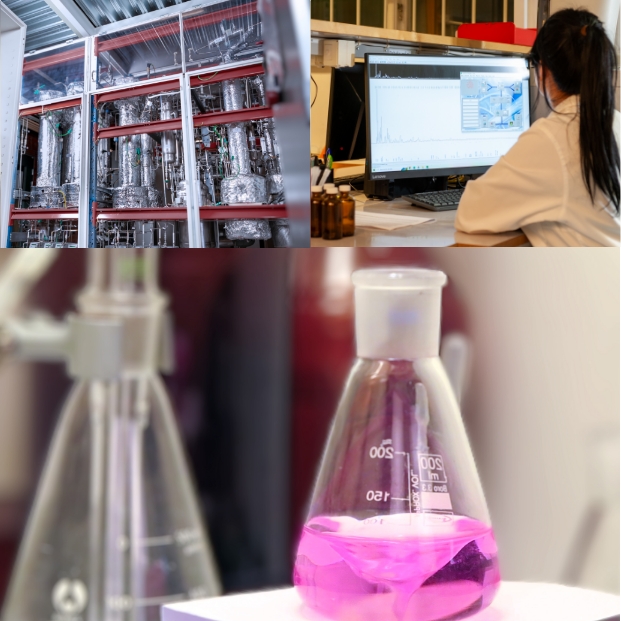Technologies
Swedish Biofuels is the inventor and company behind the original ATJ technology, patented in 2004, producing aviation fuels from alcohols. Despite the advances of many followers among alcohol producers, Swedish Biofuels has maintained its strong leading positions of superior product quality, performance, safety and availability of feedstock for its production.

Our technology was first developed and patented in 2004. From 2007 to 2020, the technology was optimised and the process has been extensively tested during continuous operation of our production plant. The quality, performance and environmental safety of our 100 % SAF has been confirmed by numerous engine tests by the US AirForce, Swedish airforce, several OEMs, and a number of Swedish, German and US fuel testing facilities.
The feedstock for our process consists of a wide variety of C2 to C5 alcohols, or any mixture of these.
This puts Swedish Biofuels in an advantageous position compared to its competitors using a single alcohol as feedstock. Besides our own catalytic process for the production of any C3-C5 alcohols from waste gases, our process can use ethanol or any alcohol available on the market or mixtures of such alcohols.
Our next generation SAF differs from others as it is real jet fuel rather than just a component. Today, our SAF is approved for use in aircraft in accordance with ASTM D7566 up to 50 %.
New ASTM certification for a wider variety of feedstock and targeting 100 % replacement of conventional fuel is being led by Swedish Biofuels.
“…it is real jet fuel rather than just a component…”
Highlights of our technology
Feedstock resilience
Our feedstock can use any alcohols or their mixtures. Alcohols with carbon numbers C2 to C5 can be produced from any variety of biomass, including sustainable forestry and agricultural waste, or from waste gases using Swedish Biofuels proprietary alcohol production process. Our ATJ process can use any alcohols, or their mixtures, available on the market. So, Swedish Biofuels SAF production is country agnostic.
Process resilience
Our process is flexible in the choice of product due to its ability to increase the maximum yield of the most profitable product in the market. The variety of fuels produced include, SAF, sustainable gasoline, sustainable diesel, sustainable LPG, sustainable aromatics. The high degree of production flexibility eliminates the risk of low product demand and maximises plant profitability.
Sustainability
Results of the evaluation of the environmental impact of our ATJ process during the EU-funded Biofit project, confirms that our process is GHG emissions neutral, targeting a 100 % reduction in GHG emissions compared nto conventional jet fuel.
Secure investment
Our ATJ production can be adapted for the production of high value chemicals including C3-C5 alcohols. This increases the plant resilience and reduces the investment risk in times of low demand for transport fuels.

